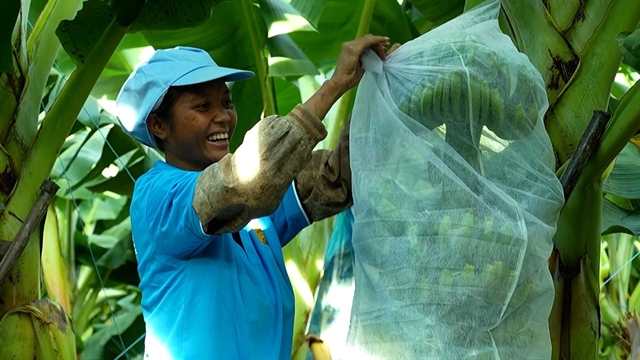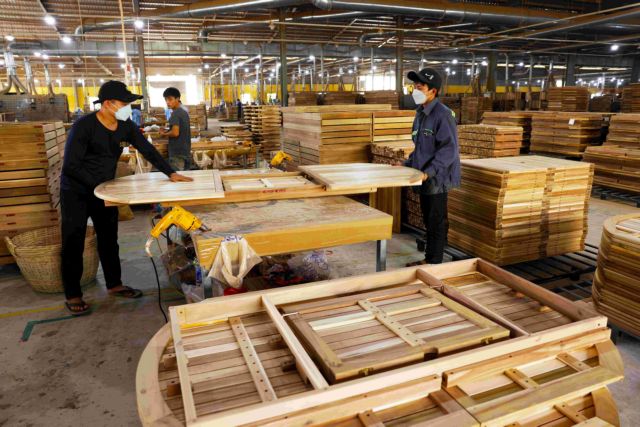 Economy
Economy


|
| Wooden products ready for export to the US. Export activities of Việt Nam's wood industry will be impacted by changes in policies of the US in the future. — VNA/VNS Photo |
HÀ NỘI — Việt Nam's wood industry has chances and also challenges due to the predicted new trade policies of US President-elect Donald Trump, according to experts.
In the first 11 months of 2024, Việt Nam’s timber and wooden product exports to the US, one of the most important export markets for the Vietnamese industry, were estimated at over US$14.6 billion .
Đỗ Xuân Lập, Chairman of the Việt Nam Timber and Forest Products Association, said the total export value this year is expected to reach over $16.2 billion, including $9 billion from the US or 56 per cent of total export value. This will cement the US as the most important market for Việt Nam's wood industry.
However, the export activities of Việt Nam's wood industry will face strong challenges from the impact of US policies in early 2025.
According to Lập, the US is likely to impose new trade policies when Trump is formally sworn in as the US President. They may include a new tax rate of 60 per cent for all imported goods from China and 15-20 per cent for imports from other countries.
“Việt Nam’s wood industry may benefit from the US' high tariffs imposed on goods from China, but the US may also impose new tariffs on goods from Việt Nam, including wood products, which will cause difficulties in exports and impact production,” Lập said.
Tô Xuân Phúc, managing director of Forest Trends' Forest Policy, Trade, and Finance Initiative, predicted that the policies of US President-elect Donald Trump will create three main changes in the future, including moving of the supply chain from China to other countries, China's investment capital flows to other countries, and immigrant labour. These factors will have a major impact on Việt Nam's wood exports.
Senior lecturer of the Fulbright School of Public Policy and Management in Việt Nam, Dr Huỳnh Thế Du, said that the Trump administration's policies will bring both opportunities and challenges. Therefore, Việt Nam needs to be flexible in taking advantage of opportunities to promote international cooperation and improve domestic firms' competitiveness.
The US requires exported wood to have a clear origin, meeting legal and environmental standards, so Vietnamese businesses should pay attention to the origin of raw materials so as not to violate international law, Du said.
In addition, Việt Nam's wood industry will face the risk of being subject to anti-dumping or anti-subsidy taxes. The US can also investigate and impose taxes if it detects fraud regarding origin or transshipment through third countries for tariff evasion, he said.
The changes in US policies will also cause Việt Nam to face increased competition from other suppliers, such as Malaysia, Indonesia and Thailand, which aim to increase their own wood exports to the US, putting competitive pressure on Vietnamese products.
On the other hand, the US will also increase support for the domestic wood industry, hoping to reduce dependence on imports.
According to Du, companies will need to increase investment in technology and innovation, improve product quality and comply with any new standards.
Meanwhile, Phúc said companies will need to be ready to respond to anti-dumping investigations or trade safeguards from the US by improving their legal capacity and risk management.
Over the longer term, Việt Nam can become a leading wood processing and exporting centre in the region if it can take advantage of shifting global investments and trading preferences.
Việt Nam's wood industry is facing many major challenges from the global trade environment, said Lập, adding that the wood industry is already implementing many comprehensive solutions to improve the internal capacity of enterprises to effective respond to new trends. — VNS




